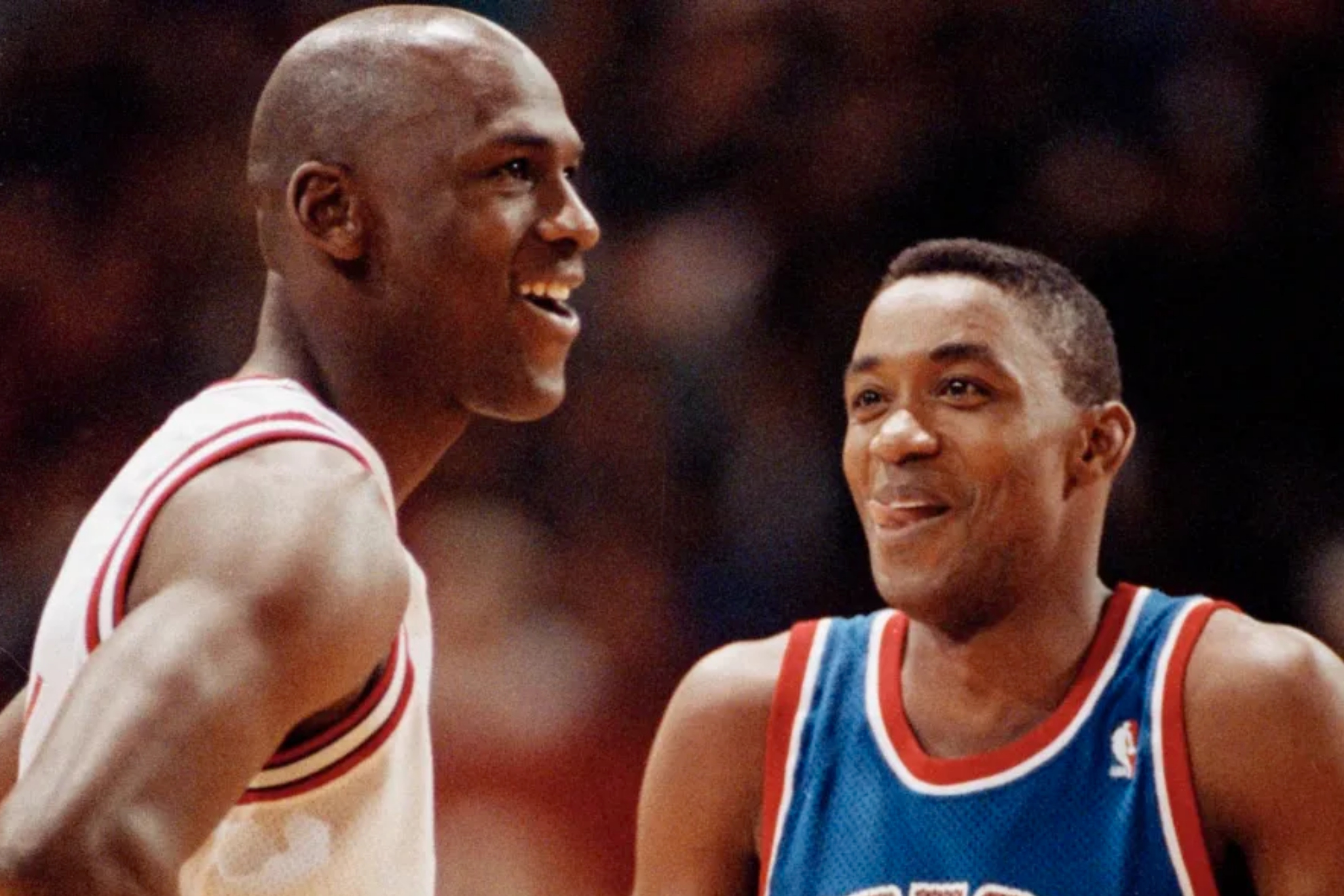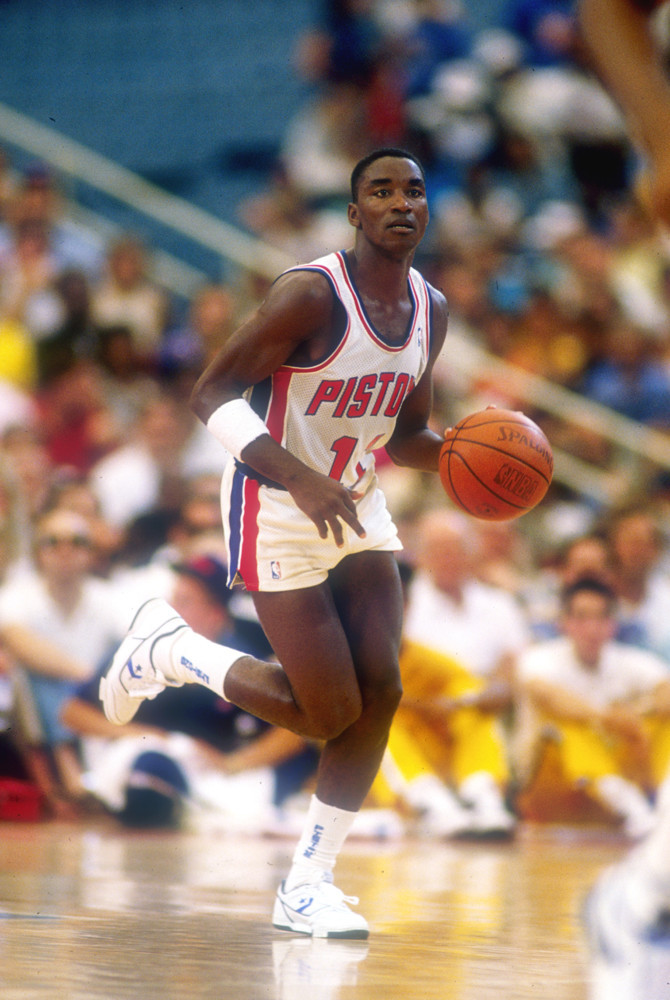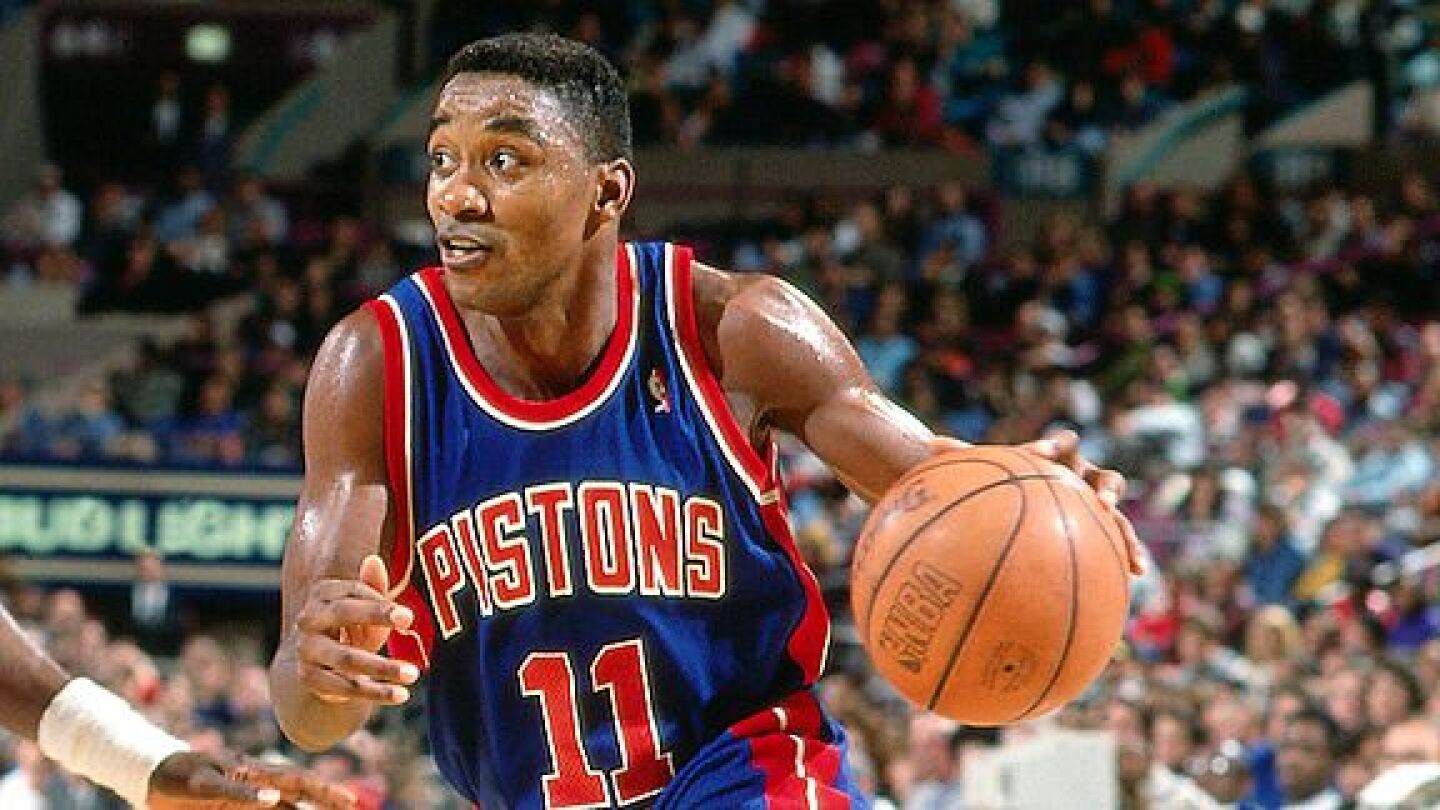Isiah Thomas (Part 3)
Isiah Thomas (Part 3)

Thomas's business career commenced during his tenure with the Pistons. Paving his path for life post-NBA, Thomas delved into various enterprises through his Michigan-based private investment firm, Isiah Investments, LLC. Among his primary investments stood a vast network of printing franchises, American Speedy Printing Centers Inc. Thomas adopted a proactive stance at American Speedy, actively contributing to steering the company from bankruptcy to profitability, eventually establishing it as one of the premier printing franchises globally.
As the founding chairman and CEO of Isiah International LLC, Thomas oversees a conglomerate boasting a diverse array of business ventures and investments. Notable entities within the Isiah International family include Gre3n Waste Removal, Re3 Recycling, and Eleven Capital Group.
In 1998, Thomas embarked on a venture targeting consumers, retailers, and corporations, offering online gift certificates and other i-commerce products through Isiah.com. Additionally, Isiah.com forged a partnership with the NBA store, enhancing its market presence.
In April 1999, Thomas shattered barriers by becoming the first African-American elected to the board of governors of the Chicago Stock Exchange, serving until 2002.
Beyond these endeavors, Thomas has left an imprint in real estate ventures across Chicago and its environs, spearheading projects under the umbrella of Isiah Real Estate. Notably, in 2013, Thomas redirected his investments towards distressed areas, aiming to foster revitalization and community development.
A prominent initiative involved a $300 million development pact for a mixed-use complex at the Illinois Medical District Commission in 2015. Collaborating with Higgins Development Partners, Thomas Samuels Enterprises, and East Lake Management & Development, Isiah Real Estate aimed to transform 9.5 acres of land into a multifaceted space encompassing retail outlets, a hotel, apartments, and parking facilities.
Thomas's influence extended to advisory roles, including serving as a founding member of the advisory board for Marquis Jet Partners and as a partner in Dale and Thomas Popcorn.
Moreover, Thomas assumed leadership positions as CEO and executive chairman of the board of directors of One World Products, a U.S.-based cannabis company with cultivation and processing facilities in Colombia.
Following the conclusion of his playing days, Thomas transitioned into a role as part owner and executive vice president of the newly established Toronto Raptors in 1994. However, in 1998, he departed from the organization amidst disagreements with the incoming management regarding the franchise's trajectory and his forthcoming duties. Throughout his tenure with the team, the Raptors made significant draft selections, including Damon Stoudamire, Marcus Camby, and high school standout Tracy McGrady.

During his tenure at the CBA, Thomas initiated partnerships with Enlighten Sports and the University of Colorado to enhance the league's online presence. These collaborations resulted in the launch of new websites that offered fans the opportunity to stream live game webcasts, utilize live shot charts, engage in player chats, and more. Thomas emphasized the significance of the internet in the CBA's strategy to deliver compelling and interactive content to its fan base.
Additionally, Thomas orchestrated a partnership between the CBA and SEASONTICKET.com, aimed at providing personalized video highlights and scores to fans nationwide, while serving as a platform for All-Star League voting. Recognizing the potential of streaming video, Thomas envisioned it as the future of news and entertainment.
Under Thomas's leadership, the budget for the CBA league office reportedly doubled. However, when Thomas assumed the role of head coach for the Indiana Pacers in 2000, NBA regulations mandated that he divest ownership of the CBA. Despite the NBA's offer to purchase the league, Thomas declined, leading the NBA to establish its own minor league, thereby terminating the $2 million annual payment that served as the CBA's primary revenue stream. Following Thomas's placement of the league into a blind trust, its financial resources dwindled.
In February 2001, the league was forced into bankruptcy and subsequently dissolved. The New York Times characterized Thomas's venture into league ownership as a cautionary tale, citing it as an example of how not to manage a business.
Thomas assumed the role of head coach for the Indiana Pacers on July 20, 2000, succeeding Larry Bird, who had previously led the Pacers to the Eastern Conference title. Eager to cultivate young talent, Thomas focused on developing players like Jermaine O'Neal, Jamaal Tinsley, Al Harrington, and Jeff Foster. However, despite his efforts, the Pacers struggled to maintain their status as an elite team during the transition from a veteran-heavy, playoff-experienced roster to a younger, less seasoned squad.
In Thomas's initial two seasons with the Pacers, the team faltered in the first round of the playoffs, falling to the Philadelphia 76ers and the New Jersey Nets, both of whom eventually advanced to the NBA Finals.
In his final season with the Pacers, Thomas steered the team to a commendable 48–34 record in the regular season and earned the opportunity to coach the Eastern Conference team at the 2003 NBA All-Star Game. Despite entering the playoffs as the third seed, the Pacers were ousted in the first round by the sixth-seeded Boston Celtics. Despite the presence of burgeoning talents like Jermaine O'Neal, Brad Miller, Ron Artest, Al Harrington, and Jamaal Tinsley, alongside the seasoned leadership of Reggie Miller, Thomas's perceived lack of coaching experience was often cited as a hindrance to the Pacers' success.
During the off-season, Larry Bird returned to the Pacers as president of basketball operations, and his first move was to replace Thomas with Rick Carlisle. Thomas was relieved of his coaching duties by Bird on August 27, 2003.
References
- "Isiah Thomas Bids Farewell". The New York Times. Associated Press. May 12, 1994. Archived from the original on May 21, 2020. Retrieved March 10, 2020.
- ^ Wolff, Alexander."Look of a Winner" Archived May 23, 2006, at the Wayback Machine, Sports Illustrated, accessed October 3, 2007."There was the famous freeze-out at the '85 All-Star Game, at which Isiah Thomas led a movement of several veterans to keep the ball out of the hands of their uppity rookie teammate."
- ^ Albom, Mitch. "Why is Isiah leaving Detroit – Part 2" Archived July 20, 2013, at the Wayback Machine, Detroit Free Press, accessed April 30, 2008."I don't know how something like that gets started...what you're telling me is that I came in the locker room that had Larry Bird, Julius Erving, Moses Malone, Micheal Ray Richardson and whoever else was on that team, and I said, 'Hey, Bird, hey, Doc' – and I'm a young guy myself – 'hey, let's not give Jordan the ball.' Do you know how stupid that sounds? Do you know how ludicrous that sounds?"
- ^ Johnson, Roy S. (June 5, 1987). "Thomas Explains Comments on Bird". The New York Times. Archived from the original on May 9, 2020. Retrieved April 27, 2020.
- ^ Stone, Mike; Regner, Art (2008). The Great Book of Detroit Sports Lists. Running Press. p. 103. ISBN 978-0-7624-3354-4. Retrieved February 2, 2012. isiah thomas walk off bulls.
- ^ Banks, Lacy J. (March 12, 2011). "Amid Bulls celebration, Scottie Pippen has no regrets". Chicago Sun-Times. Archived from the original on April 17, 2014.
- ^ "Isiah Thomas gets shredded in new Dream Team documentary | ProBasketballTalk". Probasketballtalk.nbcsports.com. June 13, 2012. Archived from the original on May 26, 2013. Retrieved May 24, 2013.
- ^ Greenberg, Jon (September 12, 2009). "Michael Jordan's Hall of Fame induction speech reveals the man beneath the sports legend". ESPN. Archived from the original on December 5, 2018. Retrieved May 23, 2019.
- ^ Porter, David L. (March 30, 2004). Latino and African American Athletes Today: A Biographical Dictionary. Greenwood Publishing Group. ISBN 9780313320484. Archived from the original on June 18, 2023. Retrieved June 18, 2023 – via Google Books.
- ^ "Games of the XXIInd Olympiad – 1980". usabasketball.com. Archived from the original on September 10, 2008. Retrieved September 27, 2008.
- ^ Caroccioli, Tom; Caroccioli, Jerry (2008). Boycott: Stolen Dreams of the 1980 Moscow Olympic Games. Highland Park, IL: New Chapter Press. pp. 243–253. ISBN 978-0942257403.
- a b "Sports People: Basketball; Thomas Is Named To Dream Team II". The New York Times. January 11, 1994. Retrieved August 24, 2008.
- ^ Armour, Terry (July 21, 1994). "Marketing Skills Put to the Test to Promote a Dream". Chicago Tribune. Archived from the original on April 7, 2023. Retrieved March 10, 2020.
- ^ Vlasic, Bill (June 6, 1993). "Basketball Star Takes Shot at Printing Business". Detroit News. Archived from the original on April 14, 2015. Retrieved April 13, 2015.
- ^ "About Isiah International, LLC". Isiah International. Archived from the original on May 18, 2014. Retrieved March 14, 2014.























































